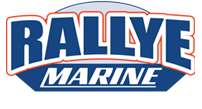Boating Safety Basics
On a sunny day, boats are pure fun—warm weather, fresh water, and adrenaline--pumping speed. But if you’re new to boating, you’ll need to learn a few things about safe boating so that you can avoid injury and stay safe. And because boats aren’t really like cars, ATVs, or other motorsport vehicles, it’s best that you do some research instead of guessing after best practices. This brief guide brought to you by Rallye Motoplex will give you a primer on how to stay safe while boating. We’re located in Moncton, New Brunswick and we’re passionate about safe boating. Remember, this guide won’t take the place of an actual government-issued boating permit. Always check with local authorities to see what classes and permitting you need in order to boat legally.

Boating Safety Preparation
The key to safe boating is thorough preparation. Start by checking the weather. A day can start out sunny and beautiful before an unpredictable summer shower swoops in and ruins things. Plus, if you’re on a larger body of water, wind and waves can kick up in mere minutes, leaving you in a dangerous position. Make sure to check the weather, and then be cautious with how you react to it, making sure to head back to shore the moment things turn south.
You should also make sure to make a checklist of safety equipment and safety practices so you don’t forget anything. Make sure to inform someone on the shore of your float plan to make sure help can find you if trouble strikes. It’s also important to name an assistant skipper. The duty of the assistant to the skipper is to be able to take over driving the boat should anything happen to the captain. They should not only have the skills to pilot the boat, but also know how to navigate back to safety. Finally—and most obviously—you shouldn’t step on a boat if you don’t know how to swim. You don’t have to be an Olympic athlete to learn how to tread water and doggy paddle back to shore.
Boating Safety Equipment
Once you’ve prepared your checklist and plans, it’s time gather your safety equipment. Some elements of boating safety equipment will vary depending on the type of boating you’re doing. For example, if you’re on a large yacht, you might not feel compelled to wear a lifejacket until something bad happens. On the other hand, if you’re in a speedboat towing a skier, you’ll want to make sure you’re always wearing a lifejacket, preferably one meant to fit your body. Not only should there be a lifejacket for every person on board, there should also be a life ring you can throw to someone caught overboard. You’ll want to have a flag to alert other boaters when a person is overboard, whether it’s someone who flipped their tube, or someone who was thrown from the boat during a hard-banking turn. Make sure to put your cellphone in a waterproof bag with enough air to allow it to float if it ends up in the drink. A radio is also extremely important so that you can alert the local water authority of any emergencies. Finally, never forget your first aid kit or fire extinguisher, as fires can happen on boats just as easily as anywhere else.
Best Practices on the Water
Once you’re actually out on the water, it’s time to put all your plans and preparations into action. Make sure you actually wear the lifejackets that you’ve brought along. Keep your fire extinguisher in an accessible location. Don’t drink while boating, especially if you’re driving the boat. This relates to another point: know your limits. You can’t accurately assess your own limits when you’re drinking, and one small slip over the line can result in a serious accident for you and your passengers. Make sure to give other boats space, and make sure to give any debris a wide berth, too, as you don’t know how much is submerged.
Boat safety comes down to making a plan, sticking to it, and using common sense. Hopefully this guide gave you a few tips on what things you should keep in mind while boating. If you have any questions, need parts, services, or equipment for your boat, stop by Rallye Motoplex in Moncton, New Brunswick. We serve the areas of Charlottetown, Fredericton, Saint John, and Bathurst, New Brunswick, and our team of passionate boating enthusiasts will do our best to serve you.

